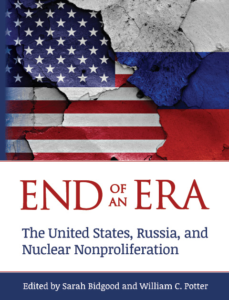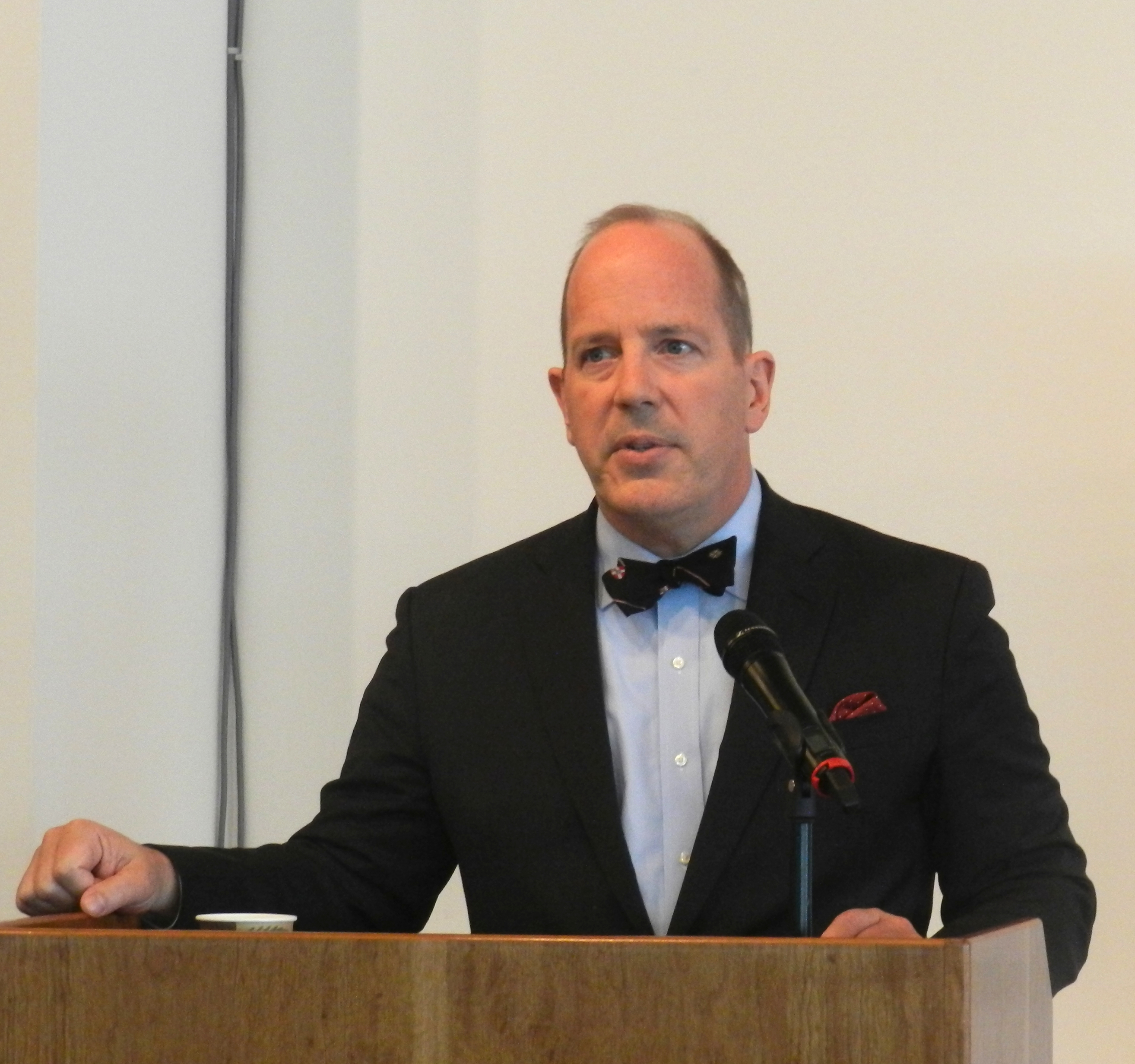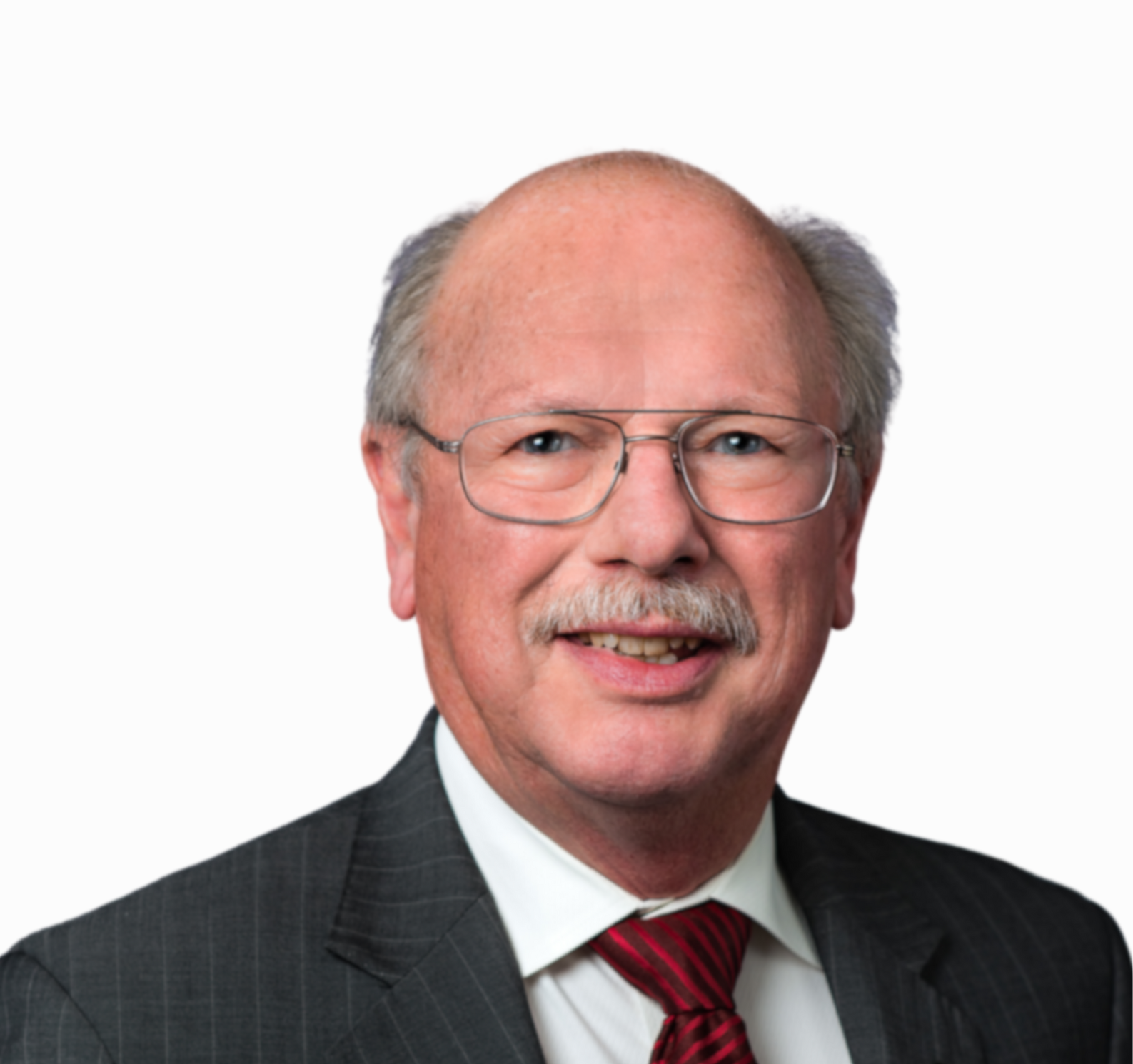

US-Russian cooperation on nuclear nonproliferation has reached an inflection point. Policymakers in both capitals must now decide whether the risks posed by the spread of nuclear weapons are great enough to merit their renewed engagement—or whether the challenges in their bilateral relationship make it impossible to collaborate in this vital sphere. A new edited volume by Center for Nonproliferation Studies Eurasia in Nonproliferation Program Director Sarah Bidgood and Founding Director Dr. William C. Potter examines some of the past challenges in the nuclear field, which were addressed through US-Russian cooperation.
The volume, entitled End of an Era: The United States, Russia, and Nuclear Nonproliferation, features contributions from several VCDNP staff, including Senior Fellow Dr. Nikolai Sokov, Senior Research Associate Dr. Hanna Notte and Research Associate Noah Mayhew.
Dr. Sokov wrote on US-Soviet and US-Russian cooperation on the implementation of the Treaty on the Non-Proliferation of Nuclear Weapons' (NPT) Article VI, which mandates "negotiations in good faith on effective measures relating to cessation of the nuclear arms race at an early date and to nuclear disarmament, and on a treaty on general and complete disarmament under strict and effective international control." Dr. Sokov's chapter explores the relationship between Article VI of the NPT and the behavior of the United States and the Soviet Union/Russia with respect to arms control negotiations and the evolution of their policies after the end of the Cold War.
Dr. Notte's chapter focuses on Russian cooperation with the United States in passing United Nations Security Council Resolution 1929 on Iran’s nuclear program in June 2010 and in banning delivery of the S-300 missile defense system to Tehran in September of that year. Dr. Notte concludes that while there is little evidence of direct linkage diplomacy between the Russian and US governments over Moscow’s support for Resolution 1929, hopes for diffuse reciprocity pervaded the Iran talks, meaning an expectation that joint efforts on a host of issues at the time - including Iran, New START, cooperative missile defence, Russia's accession to the World Trade Organization - would lead to an accumulation of goodwill on both sides, making agreement on any specific issue more likely.
In his chapter, Mr. Mayhew describes the history and cooperative implementation of the Russian Research Reactor Fuel Return (RRRFR) programme, which seeks to repatriate and secure Soviet-supplied HEU fuel from research reactors in third countries to reduce the risk of its theft and misuse. The chapter focuses on the continued implementation by the US, Russia, the International Atomic Energy Agency and the host country of the RRRFR programme in Poland, which began before the downturn in US-Russian relations due to conflict in Ukraine and continued in spite of it. He concludes that the RRRFR programme endured largely because of the centrality of technical cooperation among the parties, the elevated role of specialized government agencies and civil nuclear entities in its implementation, and financial dividends on the part of the recipient country.



